Joey Jones: On this Memorial Day, let's be a country worth serving
Fox News' Joey Jones reflects on the sacrifice of military personnel on 'Fox News Tonight.'
This weekend, Americans set aside a day to honor the memory of those who sacrificed their lives in defense of their country: Memorial Day.
The federal holiday only became official in 1968, but this national day of remembrance traces its origins to over 160 years ago, to the Civil War, when a grieving country sought to honor the many brave men lost in the bloody conflict, including Sgt. Joseph Allen Frith.
Frith was a handsome, 23-year-old, gray-eyed farmer who joined Richard Blazer’s Scouts, Lincoln’s special forces, from the 34th Regiment Ohio Volunteer Infantry. His fellow soldiers described him as "always ready for anything, and always in good humor," and he had many friends, which was indicative of the esprit de corps and cohesion within the unit.
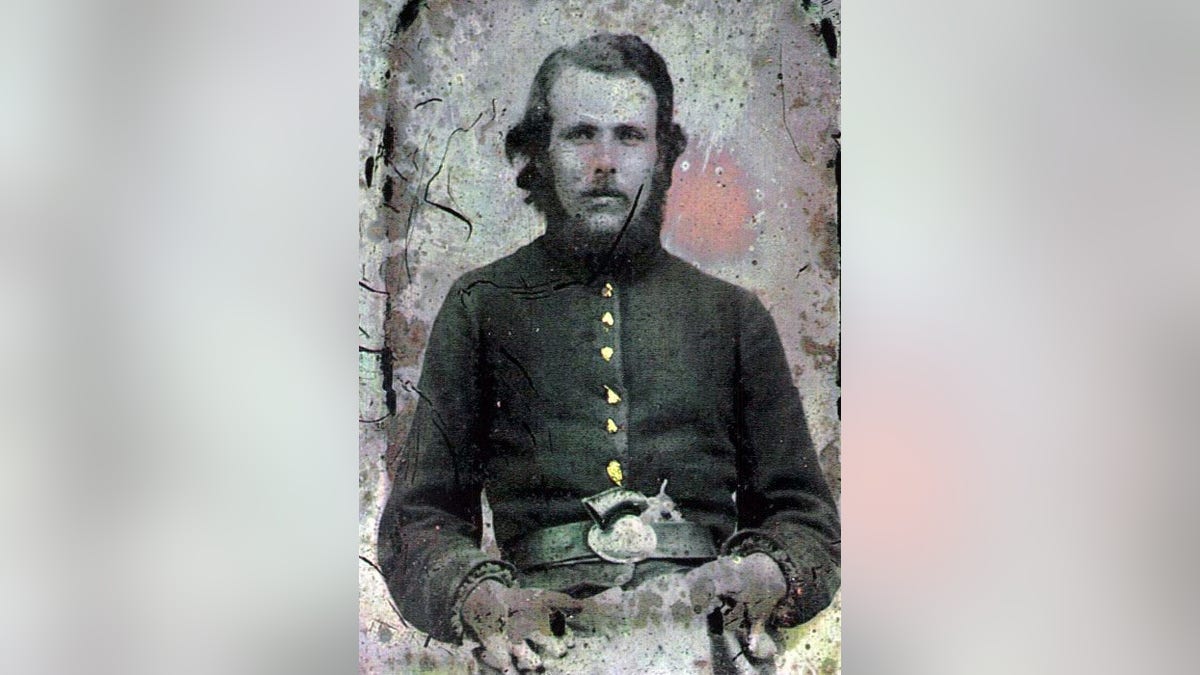
Sgt. Joseph Allen Frith sustained a fatal bullet in the back from a young untrained fellow Union soldier during the Civil War. (Author photo through Art Frith)
Lincoln’s Special Forces not only led the Union armies in battlefield reconnaissance but also tracked the South’s most dangerous men, forming one of the first hunter-killer teams in the U.S. Army. To hunt their prey – Confederate guerrilla leader John Singleton Mosby and his Rangers – the Union Scouts donned Confederate butternut uniforms and engaged in irregular warfare.
On a summer day in June 1864, Frith and his fellow Scouts stumbled upon a party of Confederates. A violent firefight on horseback ensued. Men on both sides were wounded and killed before the Confederates fled.
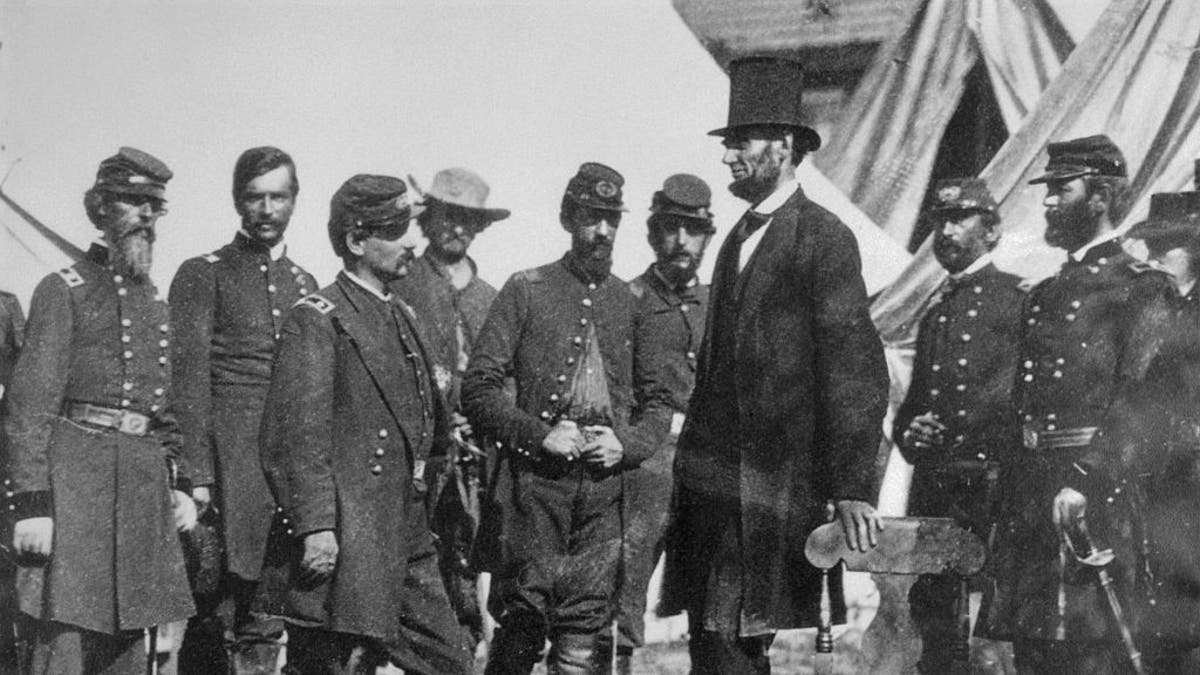
President Abraham Lincoln with Gen. George B. McClellan, third from left, at his headquarters at Antietam, Oct. 3, 1862. (Getty Images)
Frith sustained a fatal bullet in the back from a young untrained fellow Union soldier, a clerk who had "no business" riding with the Scouts, and who carelessly carried his "revolver in hand, directly in the rear of Joe. His horse stumbled and fell, causing the discharge of his pistol. The ball entered poor Joe’s back coming out at the pit of his stomach."
In a letter informing Frith’s father of his death, a fellow Scout said Frith "spoke of his mother frequently and wanted to let her know he died like a soldier."
MEMORIAL DAY 2023: NOTE ON A WHITE STONE CROSS
The following evening, at a nearby farmhouse owned by a Mrs. Dickson in Covington, Virginia, despite a surgeon’s care, "At seven o’clock he folded his arms across his breast, turning over on his side, and seemed to fall asleep – he was gone to his rest."
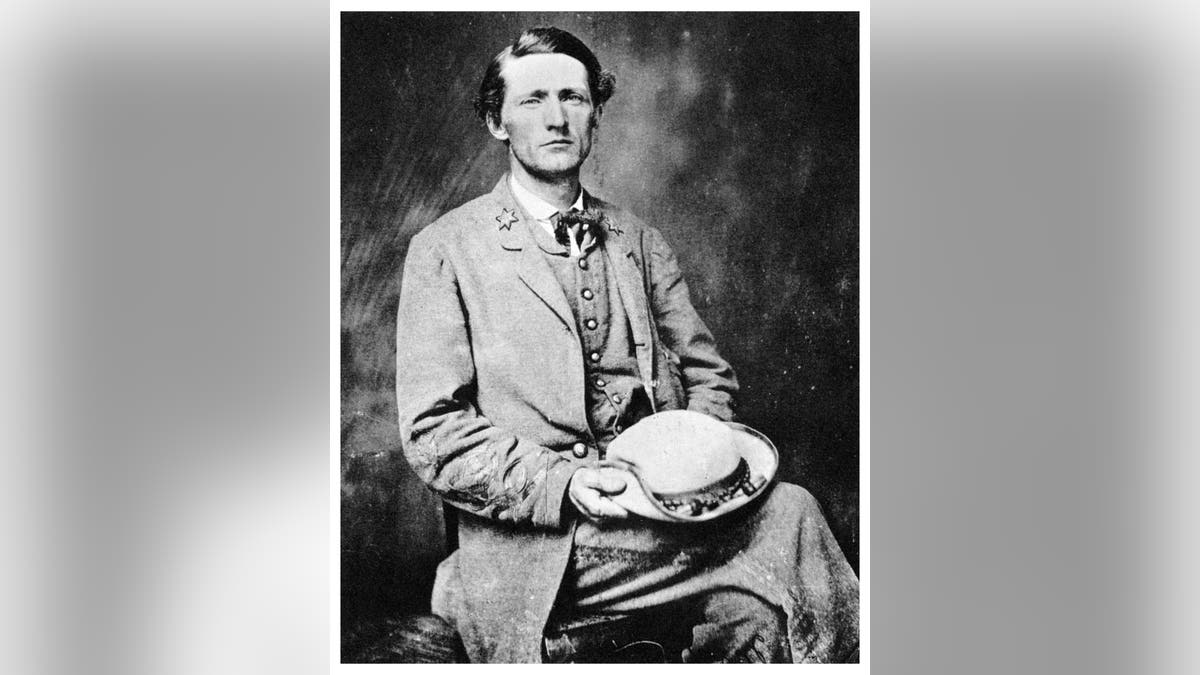
Col. John Singleton Mosby commanded the famous "Mosby's Rangers" in the Civil War. (The Print Collector/Print Collector/Getty Images)
The previously untold story of Frith and the remarkable stories of many other brave Civil War covert warriors are told in my new bestselling book, "The Unvanquished." The book reveals the drama of irregular guerrilla warfare that altered the course of the Civil War, including the story of Lincoln’s special forces who donned Confederate gray to hunt Mosby and his Confederate Rangers from 1863 to the war’s end at Appomattox. These soldiers inspired the creation of U.S. special operations in World War II.
I TRULY UNDERSTOOD MEMORIAL DAY WHEN I BECAME PART OF THIS GOLD STAR FAMILY
Joseph Frith’s body was buried behind the Dickson house "with the honors of a soldier… in as good form as the circumstances would allow." Like many of his fellow covert warriors who left home to defend their country and never returned, Frith’s grave tragically remains unknown. "Poor Joe. His death has left a vacancy in his regt, that can never be filled… I don’t think there was a man in the regt who had more friends, or whose loss could be more regretted."
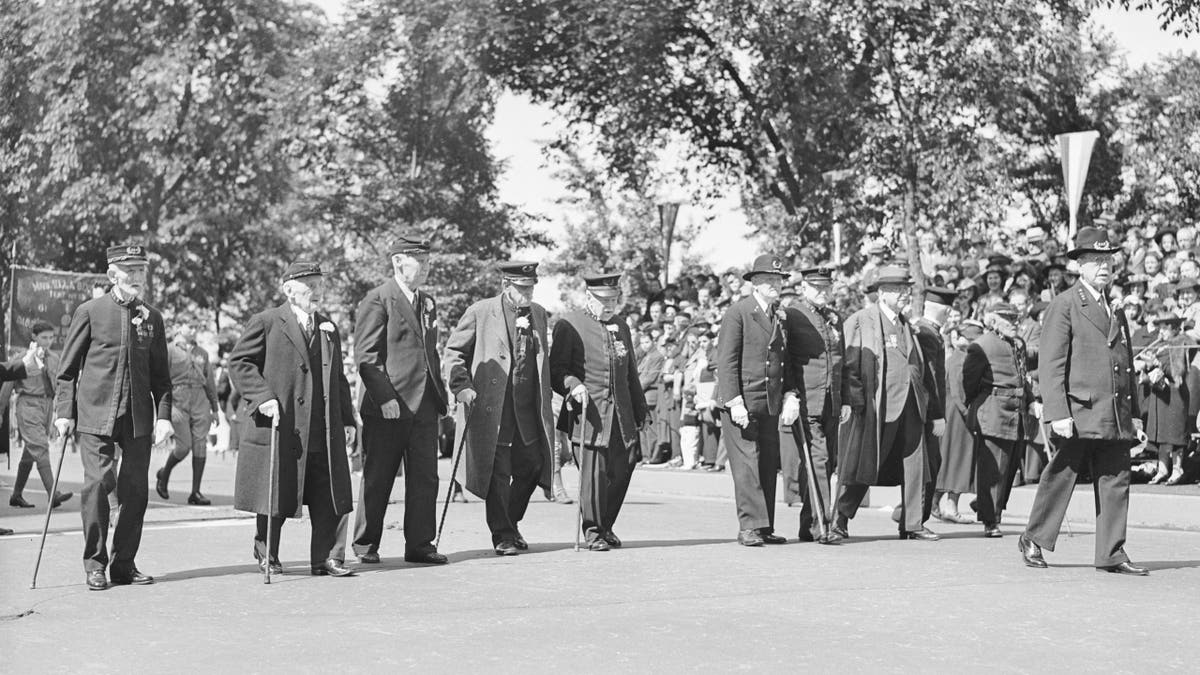
Civil War veterans march in the Grand Army of the Republic Memorial Day Parade in New York on May 30, 1938. (Getty Images)
Efforts are underway by the author to find the final resting place of Sgt. Frith. Those who may have information are encouraged to contact @combathistorian.
The exact origin of Memorial Day is disputed, but the tradition of strewing the graves of fallen soldiers with flowers to honor their sacrifice and memory started in both the North and South immediately after the close of the Civil War. In the South, it was particularly the women, the Ladies Memorial Association of Columbus, Georgia, among others, that sought to honor and remember the fallen in what would become known as Decoration Day.
CLICK HERE FOR MORE FOX NEWS OPINION
In the North, the veterans led the way, with one veterans’ group, the Grand Army of the Republic, specifically stating that the practice should "be kept up year to year, while a survivor of the war remains to honor the memory of his departed comrades."
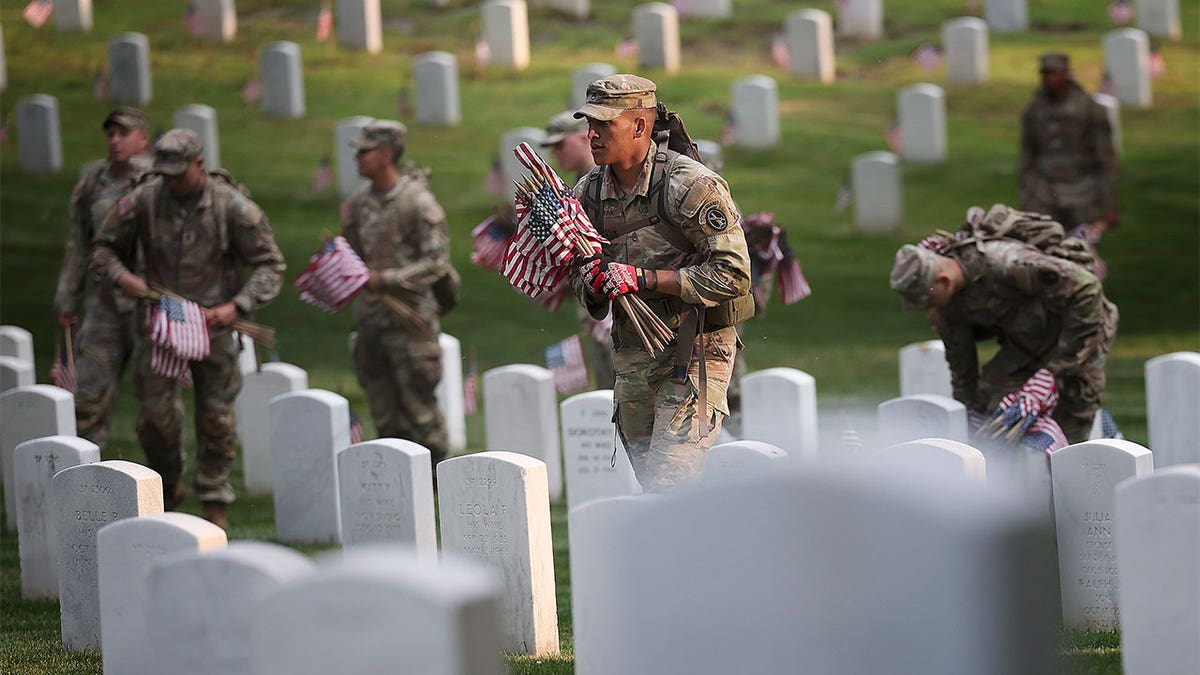
Members of the military place flags alongside tombstones on Memorial Day, on May 25, 2023, at Arlington National Cemetery in Virginia. (Win McNamee/Getty Images)
After World War I, the practice expanded to honor all American veterans who have given their lives in battle, and today some have expanded it even further to include all veterans who have passed.
Frith’s father reflected on Joseph’s death, the second son he had lost during the war, in a letter printed in the local newspaper with these powerful words directed to the soldier’s childhood friends:
CLICK HERE TO GET THE FOX NEWS APP
"In his own pure and unselfish life, he taught you a lesson how to live, and in his calm composure in the hour of death, he has left you his example of how to die."
We do well to remember.










































